#countee cullen
Text

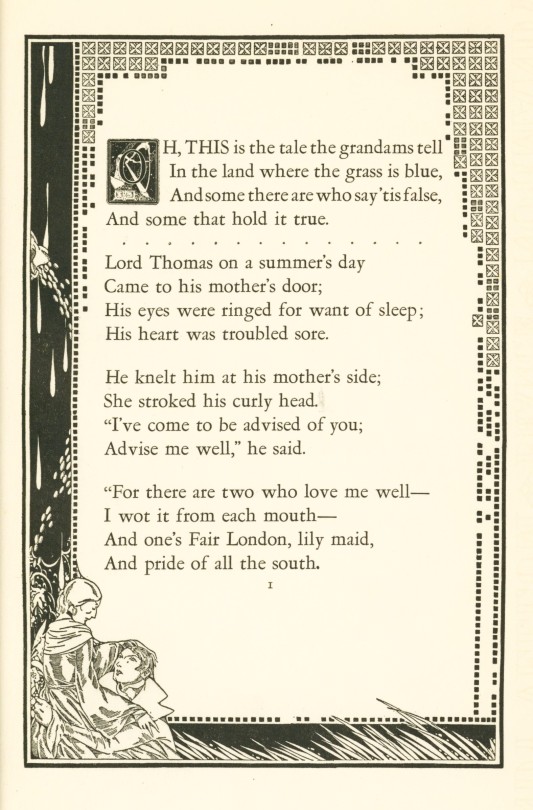

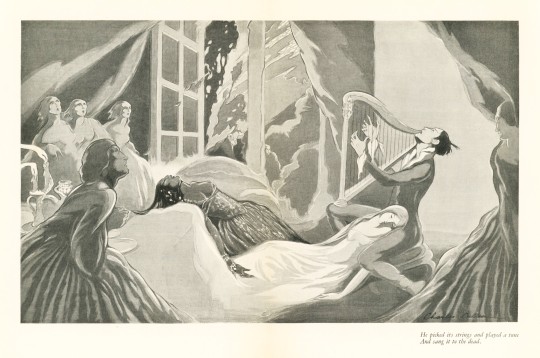


The Ballad of the Brown Girl
The Ballad of the Brown Girl was Harlem Renaissance writer Countee Cullen's (1903-1946) first major poem, and this is the first edition of only 500 copies, published in New York and London by Harper & Brothers in 1927, with illustrations and page decorations by the unrelated Art Deco artist Charles Cullen (1887-?). Brown Girl is Countee Cullen's revision of a 17th-century English ballad based on a folk tale featuring two women with different color hair. Cullen's revision alters the descriptions to suggest they are of different races, establishing tensions between romance, segregation, and social hierarchy.
The white Charles Cullen grew up in Brooklyn and was living and working in Manhattan when he met the Black Countee Cullen around 1926 and illustrated four books for the writer: Copper Sun (1927), The Ballad of the Brown Girl (1927), an illustrated second edition of Color (1928), and The Black Christ and Other Poems (1929). It seems a significant coincidence that the two would share a last name, but the stars seem to have been aligned. For example, Countee Cullen's birth name was Countee LeRoy Porter and Charles Cullen was born in LeRoy, New York. Coincidence? We don't think so.
View another work by Countee Cullen.
View another book illustrated by Charles Cullen.
View other Black History Month posts.
#Black History Month#Countee Cullen#The Ballad of the Brown Girl#Harper & Brothers#Charles Cullen#poems#African Amerricans#African American writers#illustrated books#Art Deco
42 notes
·
View notes
Text
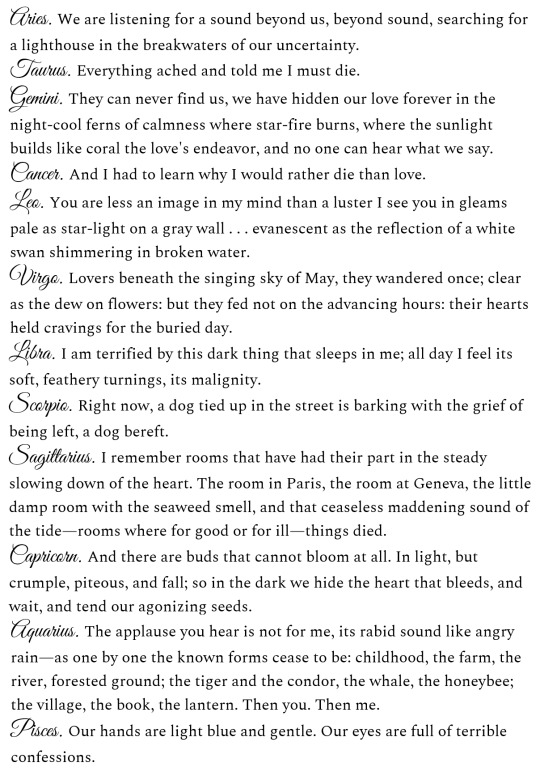
Diane Ackerman. Robert Lowell. George Abbe. Anne Sexton. Lola Ridge. George Meredith. Sylvia Plath. Frederick Seidel. Charlotte Mew. Countee Cullen. Betty Adcock. Anne Sexton.
#literature#writeblr#writing prompt#poetry#quotes#star signs#zodiac signs#diane ackerman#robert lowell#george abbe#anne sexton#lola ridge#george meredith#sylvia plath#frederick seidel#charlotte mew#countee cullen#betty adcock
23 notes
·
View notes
Text

Thanks to @rstabbert for his post about Countee Cullen. Cullen was a poet who was a part of the African American cultural revival of the 1920s and 1930s called the Harlem Renaissance.
Cullen attended New York University and won an award for his book of poems "The Ballad of the Brown Girl". When he graduated from NYU in 1925, he was one of eleven students selected to Phi Beta Kappa.
He continued on to Harvard towards a Masters Degree and published “Color”, his book of poetry that “celebrated black beauty and deplored the effects of racism.”
Although Cullen was married twice, like other men of his era, he had to hide his true feelings about men. His friend Alain Locke introduced Cullen to the works of British poet Edward Carpenter who was an early advocate for Gay Rights. (Carpenter had maintain a same sex relationship for nearly 40 years.)
Cullen wrote about the impact Carpenter’s work had on him:
“It opened up for me soul windows which had been closed; it threw a noble and evident light on what I had begun to believe, because of what the world believes, ignoble and unnatural"
Of course some historians deny Cullen was homosexual, as is usually the case of straight society trying to deny Gay men exist.
For more about Cullen, read Rstabbert’s post.
To read about Edward Carpenter, check my post about him here:
#gay icons#gay rights#gay man#Countee Cullen#African American poet#harlem renaissance#Edward Carpenter#Harvard#black beauty#the effects of racism
31 notes
·
View notes
Text
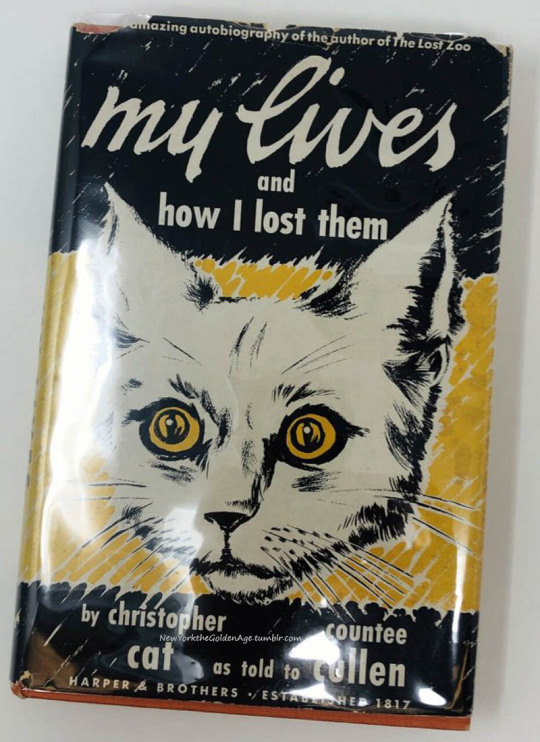


The poet and playwright Countee Cullen was a major figure of the Harlem Renaissance, but few know that he also wrote a children’s book. My Lives and How I Lost Them, published in 1942, follows the reminiscences of Christopher Cat, who is in his ninth life, about his adventure in his previous eight. Christopher Cat dedicates his memoir to fellow feline, Pumpkin Cummings of Old Orchard Beach, Maine, and her late, unnamed brother. The book was illustrated by Robert Reid Macguire.
Source: Middlebury College
#New York#NYC#vintage New York#1940s#Countee Cullen#children's literature#Christopher Cat#My Lives and How I Lost Them#Robert Reid Macguire#children's books#Harlem Renaissance#poets
133 notes
·
View notes
Text
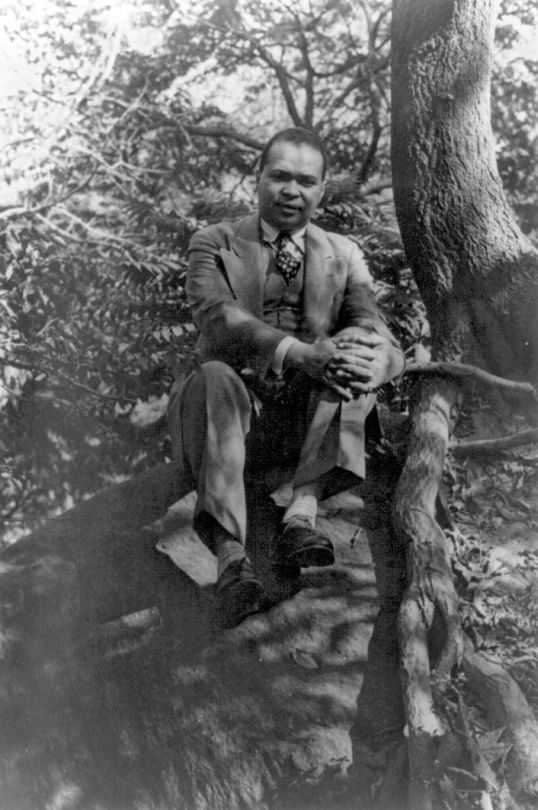
Countee Cullen, US poet
#Countee Cullen#Cullen#USA#US#United States#poetry#poet#author#writer#American#America#Maryland#Baltimore#Kentucky#Louisville#New York#NYC#New York City#1903#1900's#1946#1940's
9 notes
·
View notes
Text
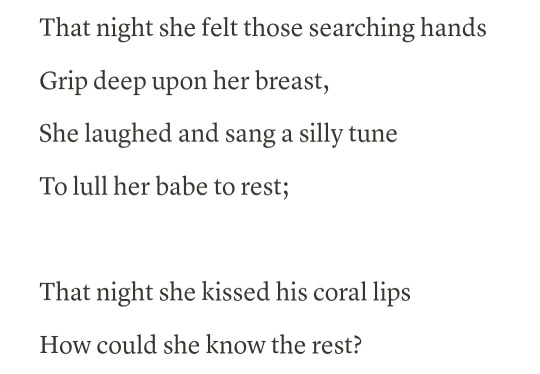
Countee Cullen, "Mary, Mother of Christ," in Collected Poems
8 notes
·
View notes
Text
I CANNOT hold my peace, John Keats;
There never was a spring like this;
It is an echo, that repeats
My last year's song and next year's bliss.
I know, in spite of all men say
Of Beauty, you have felt her most.
Yea, even in your grave her way
Is laid. Poor, troubled, lyric ghost,
Spring never was so fair and dear
As Beauty makes her seem this year.
I cannot hold my peace, John Keats,
I am as helpless in the toil
Of Spring as any lamb that bleats
To feel the solid earth recoil
Beneath his puny legs. Spring beats
Her tocsin call to those who love her,
And lo! the dogwood petals cover
Her breast with drifts of snow, and sleek
White gulls fly screaming to her, and hover
About her shoulders, and kiss her cheek,
While white and purple lilacs muster
A strength that bears them to a cluster
Of color and odor; for her sake
All things that slept are now awake.
And you and I, shall we lie still,
John Keats, while Beauty summons us?
Somehow I feel your sensitive will
Is pulsing up some tremulous
Sap road of a maple tree, whose leaves
Grow music as they grow, since your
Wild voice is in them, a harp that grieves
For life that opens death's dark door.
Though dust, your fingers still can push
The Vision Splendid to a birth,
Though now they work as grass in the hush
Of the night on the broad sweet page of the
earth.
"John Keats is dead," they say, but I
Who hear your full insistent cry
In bud and blossom, leaf and tree,
Know John Keats still writes poetry.
And while my head is earthward bowed
To read new life sprung from your shroud,
Folks seeing me must think it strange
That merely spring should so derange
My mind. They do not know that you,
John Keats, keep revel with me, too.
Countee Cullen, 'To John Keats, Poet. At Spring Time,' 1925
6 notes
·
View notes
Text
"I have no will to weep or sing,
No least desire to pray or curse;
The loss of love is a terrible thing;
They lie who say that death is worse."
- Countee Cullen
2 notes
·
View notes
Text
Beneath my feet lay a hundred lovers, past heat—summer evolved into winter. The air is so cold the wind bites my hand until it bleeds & then you call.. Every time we two meet.. I’m stoned out of my mind like whispering, snickering over something you don’t have the imagination to carry. But you bite into me, you bite me. Bite the neck, the thigh, the pussy lips. Bite the pussy lip. Beneath my feel lay a hundred lovers, I saxophoned them all to their grave. Damsel, siren, manatee— to vile men they’re all the same. Summers dissolved into falls’ soft belly, by any other name… any other dame? Bite my hand, my pussy weeps, I scratch my lover make the bitch bleed for me…
#poetry#sadgirl#heartbreak#frank ocean#anne sexton#love poetry#original poem#black women#countee cullen#sam levinson#asap rocky#tyler the creator
4 notes
·
View notes
Text

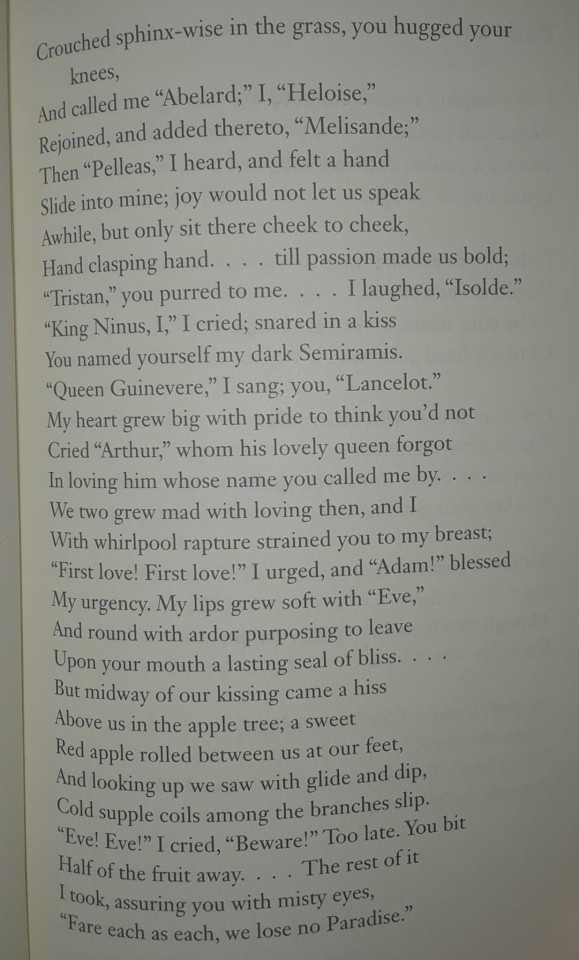
"One Day We Played a Game" by Countee Cullen, from Copper Sun (1927)
3 notes
·
View notes
Text
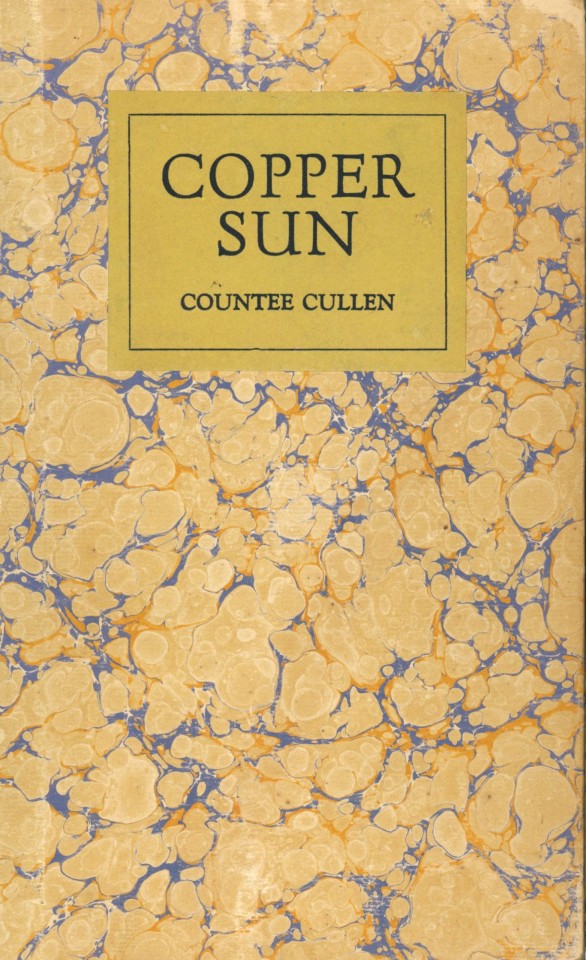
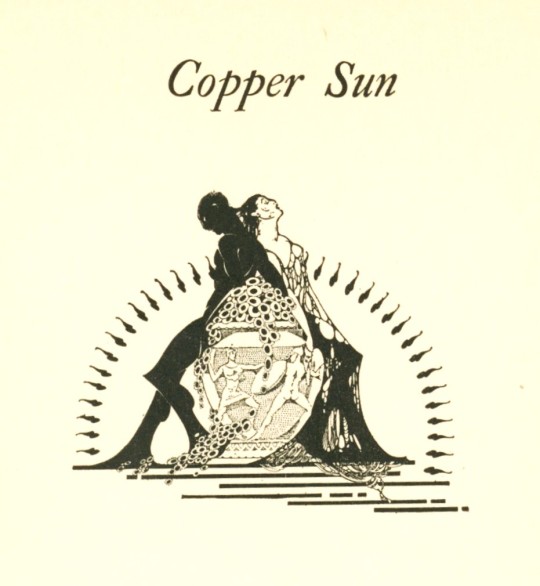

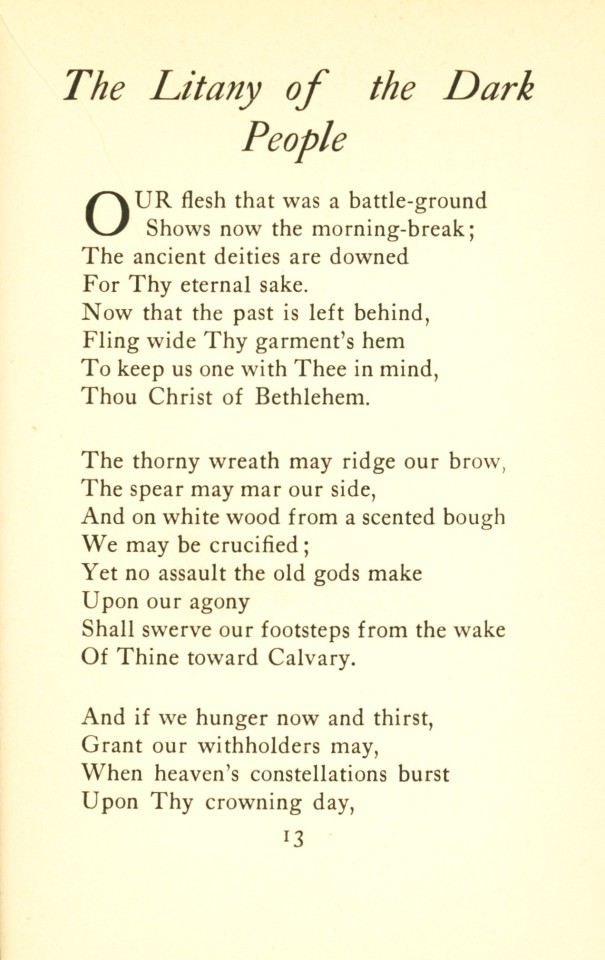
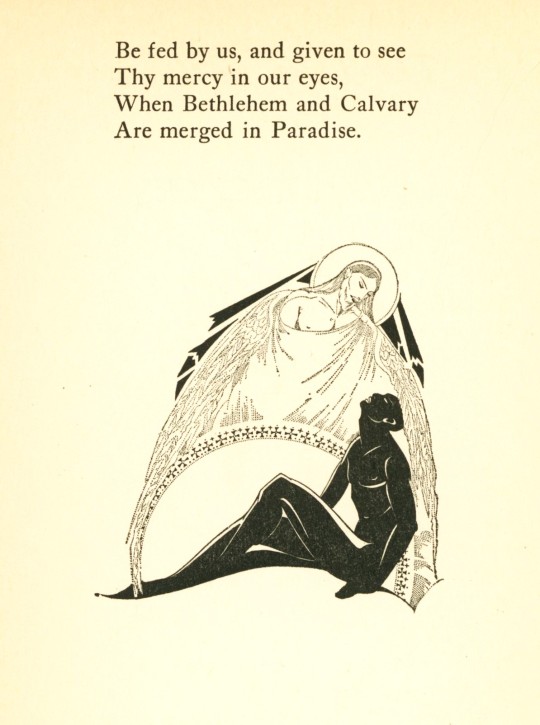

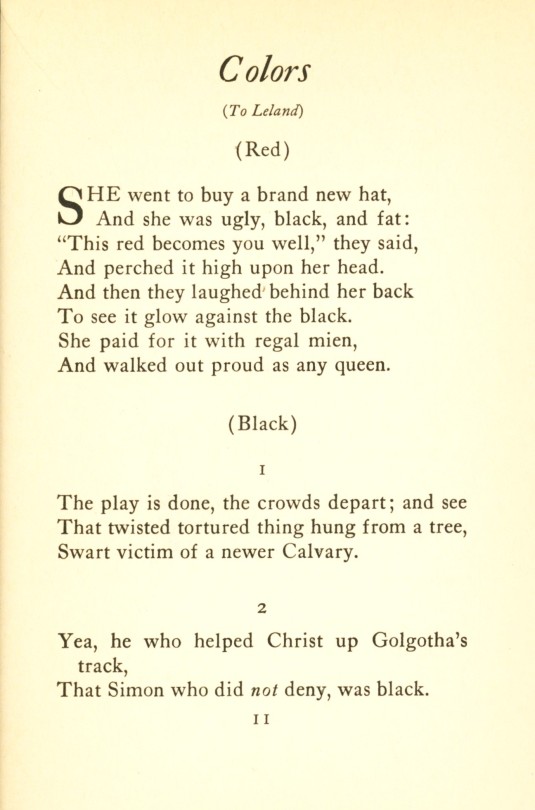

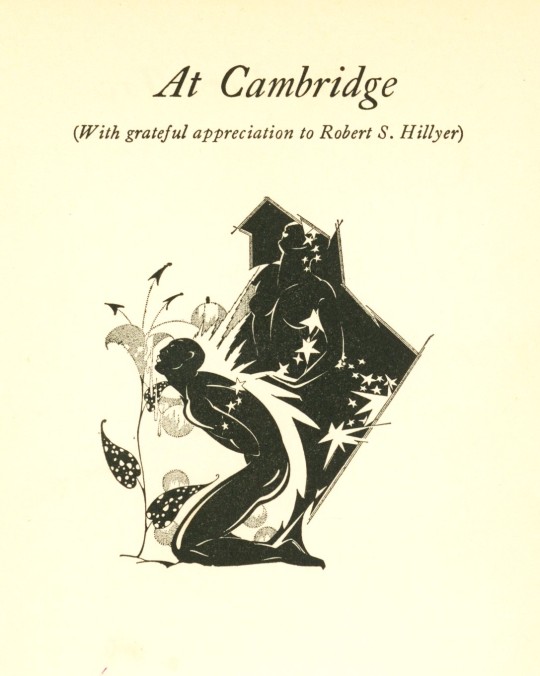




Copper Sun
Last week we brought you Harlem Renaissance poet Countee Cullen's (1903-1946) first major poem The Ballad of the Brown Girl. Today we present Cullen's second collected book of poetry, Copper Sun, published in New York by Harper & Brothers in 1927, with illustrations by the same artist who illustrated Ballad, the unrelated Art Deco artist Charles Cullen (1887-?). Copper Sun is a collection of over fifty poems that explore race, religion, and sexuality in Jazz Age America, and particularly the possibility of unity between white and black people, as exemplified in the two Cullens, one black, the other white.
View more work by Countee Cullen.
View other books illustrated by Charles Cullen.
View other Black History Month posts.
#Black History Month#Countee Cullen#Charles Cullen#Copper Sun#Harper & Brothers#harlem renaissance#Art Deco#African Americans#Black writers#Black poets#African American writers#illustrated books
43 notes
·
View notes
Text
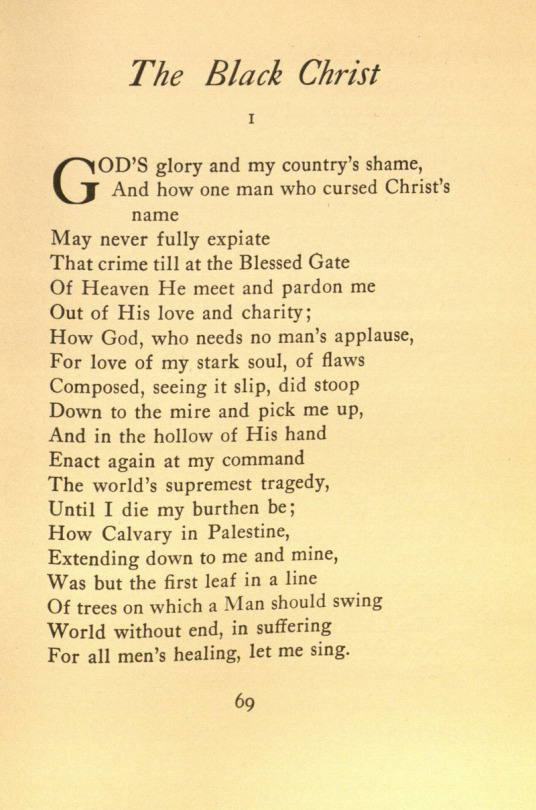
From Countee Cullen's The Black Christ & Other Poems (x)
#countee cullen#christianity#black history#black church#poetry#harlem renaissance#jesus christ#north america
2 notes
·
View notes
Text
Your grief and mine
Must intertwine
Like sea and river,
Be fused and mingle,
Diverse yet single,
Forever and forever.
"Any Human to Another" by Countee Cullen
1 note
·
View note
Text
"Your love to me was like an unread book."
Countee Cullen, poet, novelist, and playwright (30th May 1903-1946)
1 note
·
View note
Text
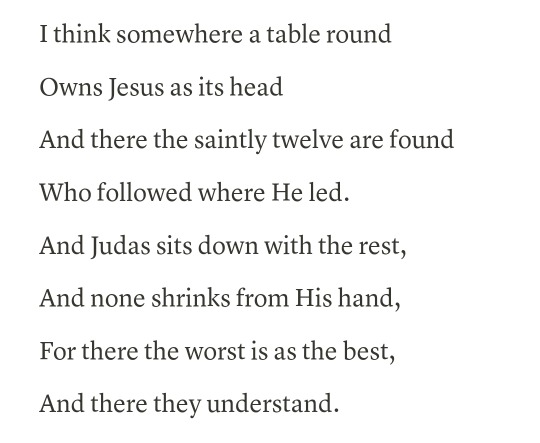
Countee Cullen, from "Judas Iscariot," in Collected Poems
5 notes
·
View notes
Text
Yet Do I Marvel
Countee Cullen
I doubt not God is good, well-meaning, kind,
And did He stoop to quibble could tell why
The little buried mole continues blind,
Why flesh that mirrors Him must some day die,
Make plain the reason tortured Tantalus
Is baited by the fickle fruit, declare
If merely brute caprice dooms Sisyphus
To struggle up a never-ending stair.
Inscrutable His ways are, and immune
To catechism by a mind too strewn
With petty cares to slightly understand
What awful brain compels His awful hand.
Yet do I marvel at this curious thing:
To make a poet black, and bid him sing!
1 note
·
View note